12 Must Have Dental Lab Equipment
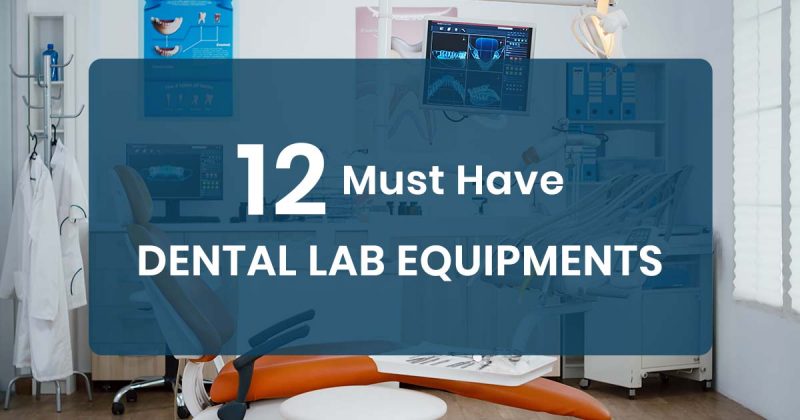
Dental Lab Equipment – In the world of dentistry, the quality of work is highly reliant on the tools and materials used during and after the procedure. Hence a well-equipped dental lab with all advanced technology equipment is a major necessity. The dental lab being the backbone of dentistry should thus cater to all kinds of dental work, from dental restorations, crowns, and bridges to dentures and aligners. Therefore, it should be a finely-tuned environment for precision to meet artistry to help in delivering high-quality and patient-satisfactory results.
In this blog, we will discuss the extensive list of tools and materials needed to make a dental laboratory that can accommodate various dental processes. Therefore, regardless of whether you are starting up a new laboratory or enhancing an already existing one, it is important to get acquainted with these basic requirements to build a place where precision, creativity, and patient satisfaction find perfect harmony.
What type of dental equipment is needed?
Depending on how one wants to operate, one should decide whether one wants a fully operational lab with all equipment capable of giving output for all kinds of dental procedures from crowns, provisional, veneers, aligners, dentures, and others or one with only a particular set of equipment required for only a few dental restorations and procedures.
Other than the equipment that is needed which we will discuss further in the blog, one also needs a wide range of dental materials, tools and accessories, and software along with a spacious workspace setup with an adequate number of workbenches, storage solutions, and proper sources for electricity and water.
Dental materials include a wide range of supplies like dental plaster and stone, wax, dental ceramics, metals alloys, impression materials, acrylic resins, adhesive agents, polishing materials, sprues and investment materials, and disinfectants and sterilizing agents.
Mixing bowls and spatulas, base former molds, trimming handpieces and burs, shade guides and many others come under the variety of tools and dental accessories as needed.
Essential software includes CAD/CAM systems for designing and manufacturing dental restorations, and practice management software for efficiently handling patient workflows.
The lab staff must maintain safety and hygiene methods since several dental materials and equipment can be hazardous to health in the long term. Hence, one should have a proper supply of gloves, masks, safety glasses, and PPE kits along with dust collection systems.
Your one stop to shop all of these is none other than Dentalkart where you can get a wide variety of all these dental requirements. With a wide range of brands available, one can buy any of the above dental supplies according to one’s budget.
Now let’s move on to the best equipment that are a must for you to add for a smooth transition of dental work.
12 Best Dental Equipment for Your Laboratory:
1. Dental Articulator
In dentistry a variety of articulators are used depending on the patient’s oral structures and treatment requirements like non adjustable, semi adjustable and fully adjustable.
A dental articulator is a vital equipment for accurate denture fabrication and treatment planning. It allows precise alignment to match individual patient anatomy, simulates jaw movements, and aids in creating occlusal splints for bruxism. This tool enhances the effectiveness of various dental procedures and has a major use in removable prosthetic appliances, fixed prosthetic appliances, and orthodontic appliance fabrication thus, making it indispensable for achieving successful patient outcomes.
Essential features of a good articulator for one to include in their dental lab equipment should be ergonomic design for ease of use, precision for accurate adjustments, flexibility to accommodate different needs, and durability for long-term use.
2. Dental Micromotor
The dental micromotor is a low-speed motor connected to handpieces—whether straight or contra-angle—and hoses. It supports patient treatment during clinical procedures as well as pre-and post-clinical procedures. It is used in a variety of dental lab procedures such as trimming of removable dentures, crown and bridge adjustments in the lab, and adjustments of orthodontic appliances with a variety of burs according to the individual prosthetic need.
When selecting a dental micro motor, consider the following essential features: a speed capability of up to 35,000 RPM for versatile operation, forward and reverse direction options for flexibility in procedures, and both hand and foot control for convenience. Additionally, look for models that offer minimal vibration and noise for a more comfortable working environment, as well as strong torque to ensure smooth and efficient performance.
3. Dental Trimmer
A trimmer is a machine used in dental laboratories for shaping hard or soft plaster. Discs (diamond, silicon carbide, etc.) are used to make cuttings. This is an essential instrument for building precise dental prosthesis models such as crowns, bridges, or dentures. In this way, plaster models can be accurately shaped by the technicians so that they will fit in the desired units needed during operative dentistry performed on them.
Features like a robust construction for guaranteed durability, consistent speed for dependable results, and precise cutting capabilities enhance the trimmer’s versatility, enabling detailed work and smooth finishes.
4. Hydraulic Press
A hydraulic press is a dental equipment that is used during denture acrylization procedures to put pressure on metal flasks. These can clamp 3 flasks with a maximum pressure of up to 400 bar (15000kg).
Before making a purchase, you should check for the following features: a precision hydraulic mechanism, a user-friendly design, robust construction, and the ability to apply significant pressure.
5. Dental Vibrator
A dental vibrator allows a technician to vibrate a mixing bowl or flask at the correct speed for the plaster, stone, or viscous solution to de-bubble. It is used to mix plaster, dental stone, and alginate to create uniform consistency, de-air the bubbles in them, and also used to apply “micro pulses” to dental braces to stimulate bone cell remodeling and speed up tooth movement. Dental vibrators can have different powers and intensities depending on the required material to be mixed.
Features to consider before purchasing equipment include variable speed settings, rubber knobs to minimize movement during vibration, and ease of cleaning and operation.
6. Pressing and Furnace Machine
In dentistry, ceramic furnaces are used to produce restorations such as crowns, bridges, inlays, and onlays. These furnaces are compatible with a range of ceramic materials. They can also apply pressure for pressing glass ceramics. These apply pressure and heat simultaneously to a sample to change its structure, sinter it, or densify it. They are used in ceramics and powder metallurgy to bond preformed compounds or powders.
Before purchasing, ensure the machine is precise, compact, features automatic temperature settings, offers fast cooling, and is energy efficient.
7. Casting Machines
It’s an electrical device used to extrude molten materials to fabricate crowns, bridges, dentures, and intracoronal and extracoronal restorations. The procedure includes melting and casting alloys for prosthetic dentistry and orthodontics.
When choosing a casting machine, look for the following features: exceptional precision for working with alloys, effective temperature control, rapid heating capability, versatility to handle various casting needs, and robust construction for long-lasting durability.
8. Vacuum Former Heater
In the dental industry, vacuum formers are employed to capture opposing bites and create various dental appliances, including sports mouth guards, bleaching trays, clear treatment splints, and orthodontic devices. These machines can work with different types of thermoplastics, selected based on the required thickness and flexibility.
A high-quality vacuum former heater should feature an even heating element with temperature control, create a strong negative pressure environment for a precise and secure fit, include an adjustable platform, and be both compact and durable.
9. Die Cutting Machine
It is an ideal instrument used to cut dental models into specific shapes and sizes in dental labs. It is used to prepare models for crowns, bridges, orthodontics appliances, and other restorative procedures by cutting dental materials into the required shapes.
A high-quality die-cutting machine should offer high precision, low noise operation, adjustable angles, and a stable working platform for efficient results.
10. Pindex Machine
A dental index machine is a piece of equipment used in dental labs to drill small holes in dental models . The machine uses a laser to guide the drilling process, which is considered to be the most precise and simple method for making an impression.
Features that contribute to an index machine’s precision and efficiency include a laser guide, high speed, noise control, and adjustable drill depth.
11. Dental Acrylizer/ Polymeriser
A dental acrylizer is a device utilized in dentistry to cure dentures and other acrylic dental products.
Effective temperature control, accurate curing cycle timings, adequate capacity, and easy maintenance are essential for the efficient operation of a dental acrylizer. Therefore, it is important to consider these factors when making a purchase.
12. 3D Printing Machine
Dental 3D printing enables the creation of dental components for both dentists and patients. These components can include models of teeth, dental aligners, and complete sets of dentures amongst many other uses. Traditionally, dental providers relied on scans, radiology, and dental models to capture precise images of patients’ teeth, which were then used to craft custom implants. But now 3D printing helps dentists to provide quicker treatments for all kinds of dental patients.
A high-quality 3D printing machine should offer high resolution and precision to produce top-notch prostheses, be compatible with various materials for different dental prosthetics, support the latest software for advanced technology, and have fast printing speed. These features are crucial to consider before making a purchase.
In conclusion, having the right dental lab equipment is crucial for achieving high-quality results and efficient operations. Key tools like dental articulators, micromotors, trimmers, acrylizers and polishing lathes are vital for precise, patient-satisfactory outcomes. Advanced technologies such as 3D printers can further enhance your lab’s capabilities and productivity. Investing in reliable, high-quality equipment tailored to your practice’s needs will ensure your lab operates at its best. For all your dental equipment needs, Dentalkart.com is here to help!

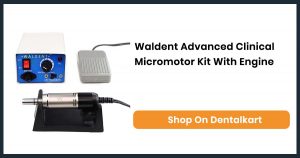


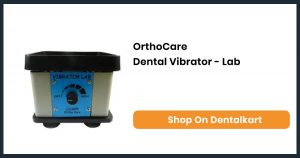
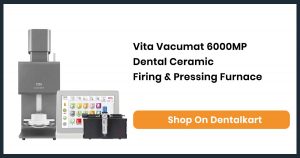
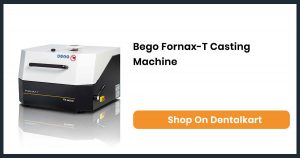
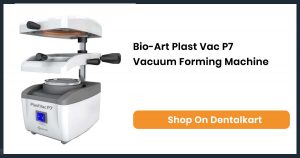
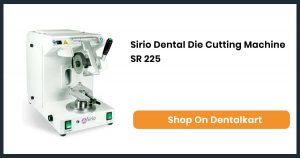
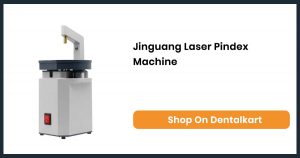

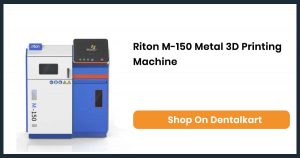
No Comment